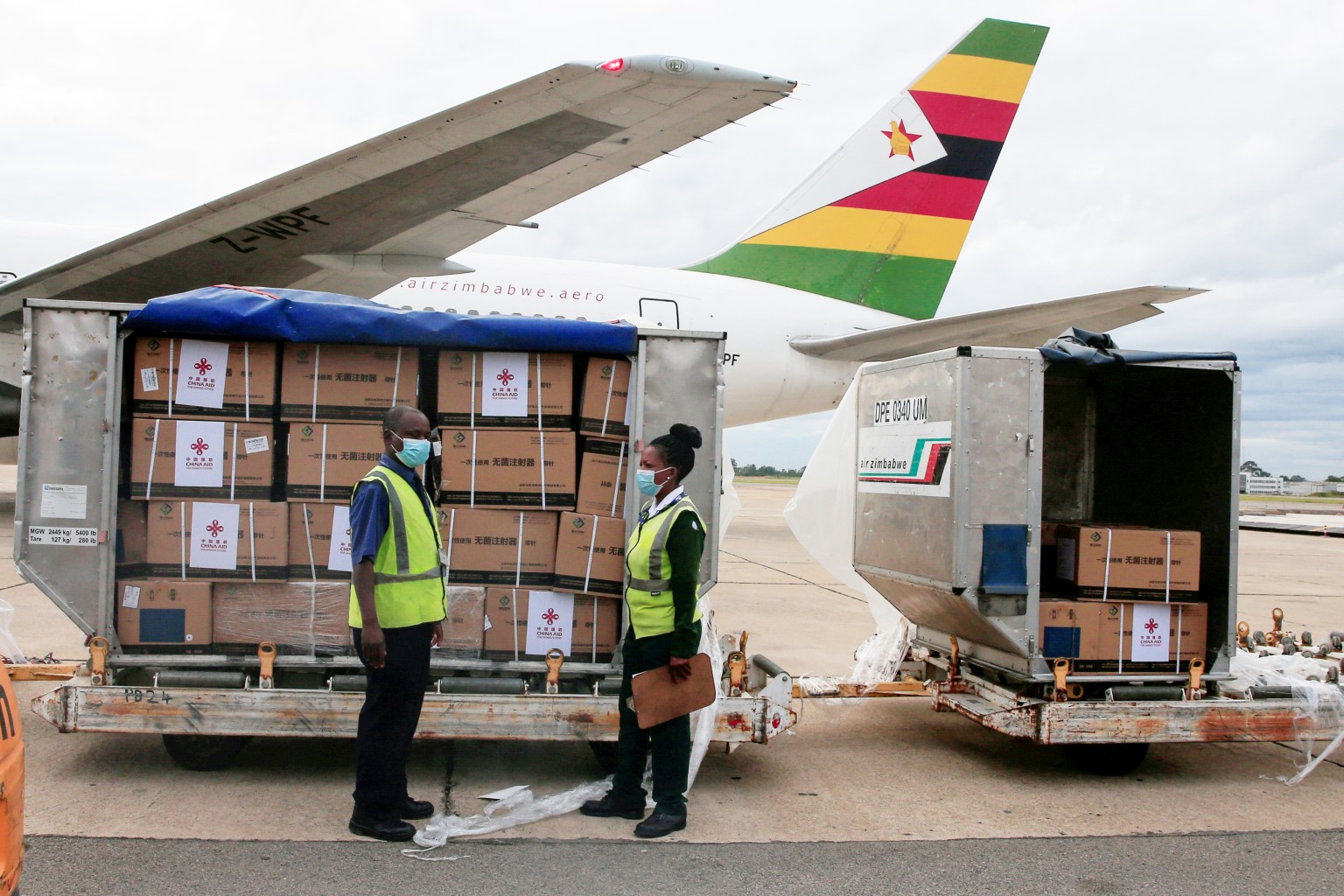Coronavirus: Global situation
Suspicion of China, conspiracy theories hinder Africa's vaccine roll-out
Sign up now: Get ST's newsletters delivered to your inbox

Zimbabwe's first batch of Covid-19 vaccines arriving from China in February. However, the source of the country's vaccine supply inhibits many Zimbabweans from taking the shots, amid rising anti-China sentiment.
PHOTO: REUTERS
Follow topic:
JOHANNESBURG • As if the struggle to secure its meagre supplies of Covid-19 vaccines was not bad enough, Africa is now having a hard time getting people to take them.
Only 5.22 million people in Sub-Saharan Africa - a region with a population of about one billion - have been vaccinated.
From suspicions about China-made vaccines in Zimbabwe, to conspiracy theories in Ivory Coast about Covid-19 being "a planned event by foreign actors", to the Islamist militant group Al-Shabaab's warning in Somalia that people are used as "guinea pigs" for AstraZeneca, large sections of Africans are steering clear of vaccines.
Already lagging behind the rest of the world in its inoculations, the wave of vaccine scepticism - made worse by a lack of trust in local governments and misinformation on social media - threatens to put the continent even further behind.
Vaccine hesitancy is standing in the way of efforts by African governments to head off successive waves of the virus. A prolonged pandemic will delay the continent's recovery, already forecast by the International Monetary Fund to be the slowest region to revive.
It will also provide a fertile breeding ground for virus variants that are reducing the efficacy of some of the vaccines used in the rest of the world.
Even as vaccines start to trickle in, a deep distrust of government is becoming one of the biggest obstacles medical authorities face.
One of the world's first countries to receive shots from the Covax initiative, Ivory Coast is barely using the doses, having inoculated only about 94,800 people, or 0.4 per cent of its population.
It does not help that the official numbers for Africa are relatively small, registering just 4.43 million cases and 117,890 deaths, a fifth of the number of people who have died in the United States alone.
Anecdotally, however, poorly equipped hospitals across the continent have buckled under the strain of people infected with the coronavirus. Testing is sparse and accurate record-keeping is rare.
In Zimbabwe, the barrier that hesitancy presents is particularly stark. Last month's survey of 561 people by the Zimbabwe Christian Alliance showed 75 per cent were unwilling to be vaccinated.
The source of its supplies, China, inhibits many from taking the shots. The ruling party, in power for all 41 years since independence, has had a close relationship with Beijing since a liberation war in the 1970s. Anti-China sentiment has risen in tandem with antipathy towards the government.
Politicians in South Africa, Zimbabwe and Nigeria have been among the first to receive shots and both Christian and Muslim leaders in Nigeria, Africa's most populous country, have publicly taken vaccines.
In Ivory Coast, the government mounted social media campaigns, and in Zimbabwe, the Health Ministry has used animated videos on Twitter to urge citizens to visit inoculation sites.
The continent's health leaders say they are confident the roll-out will eventually succeed.
BLOOMBERG

